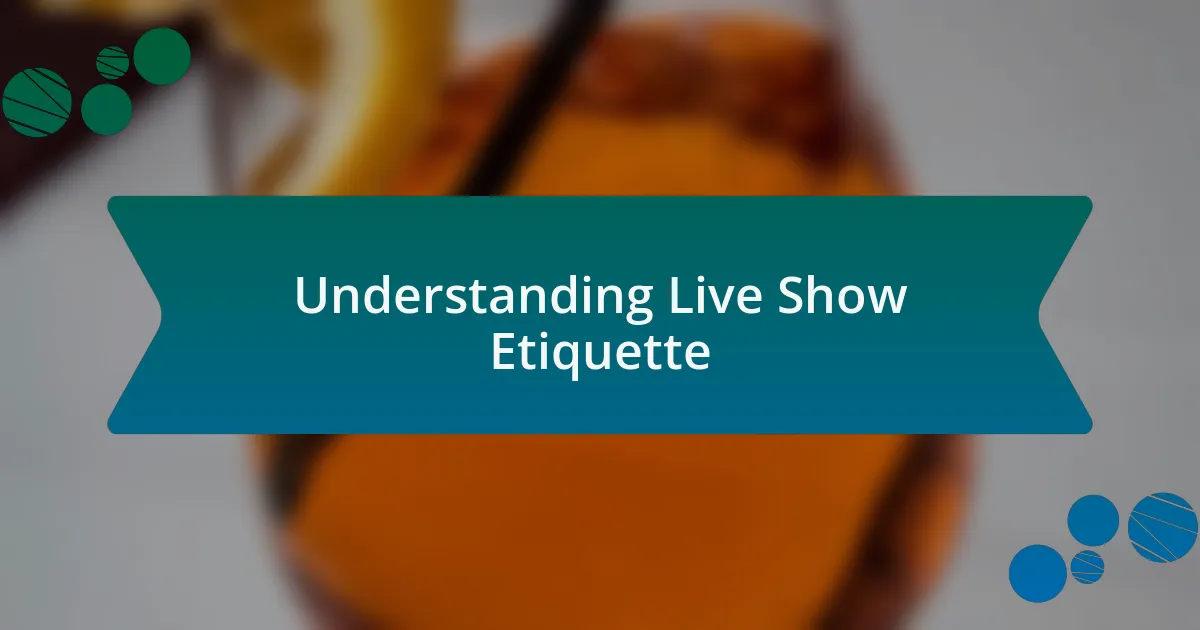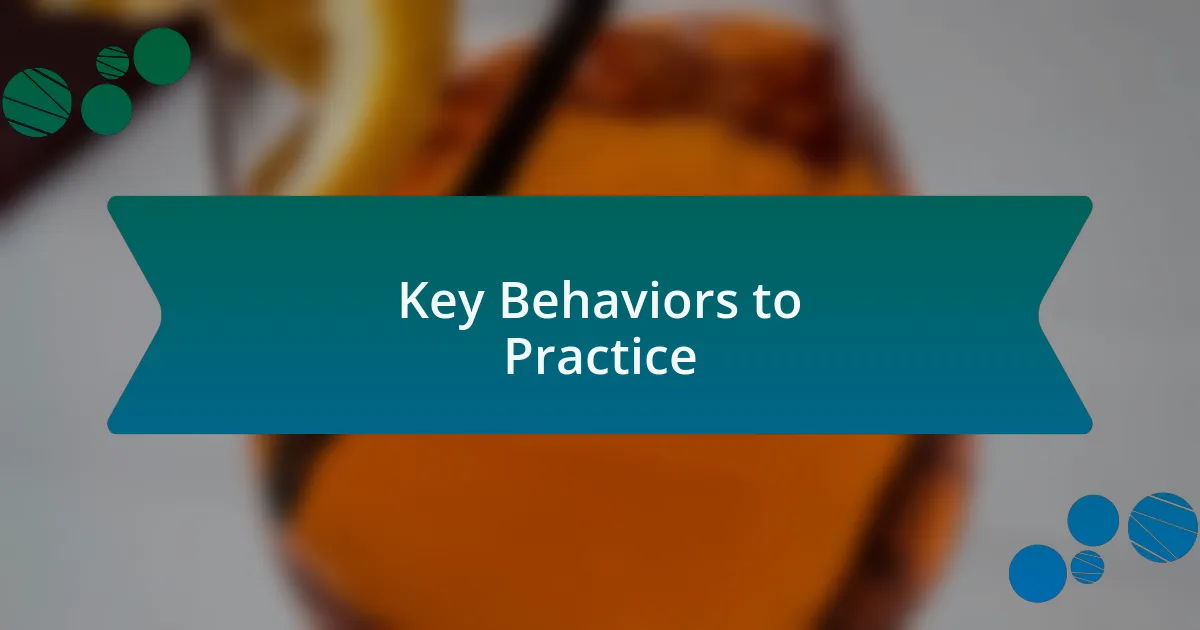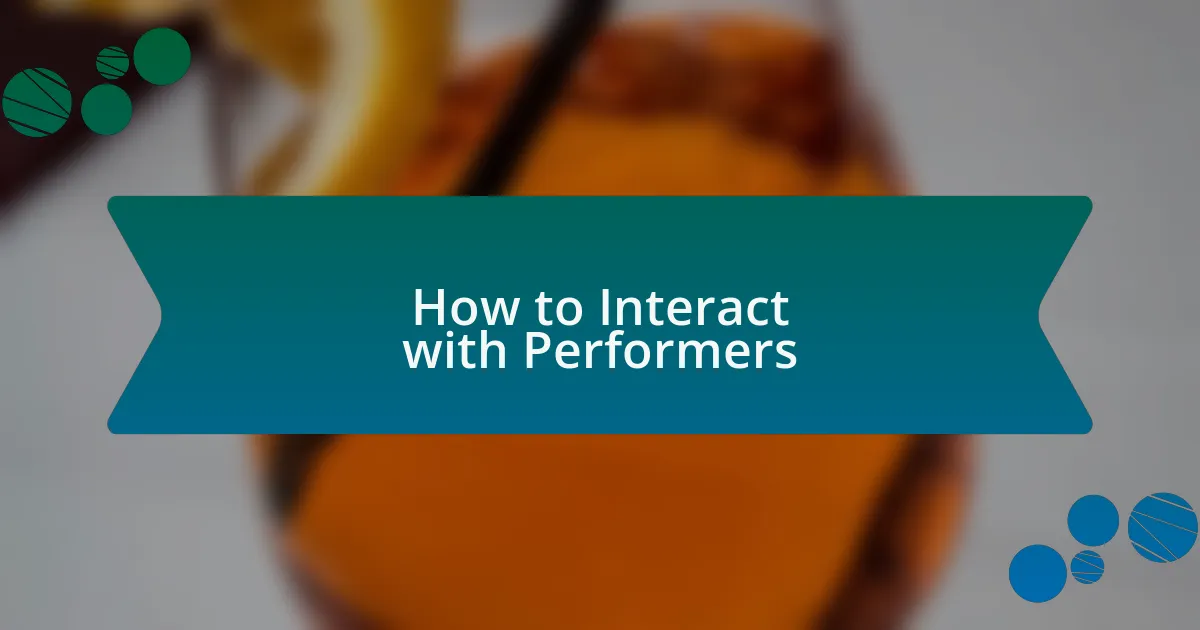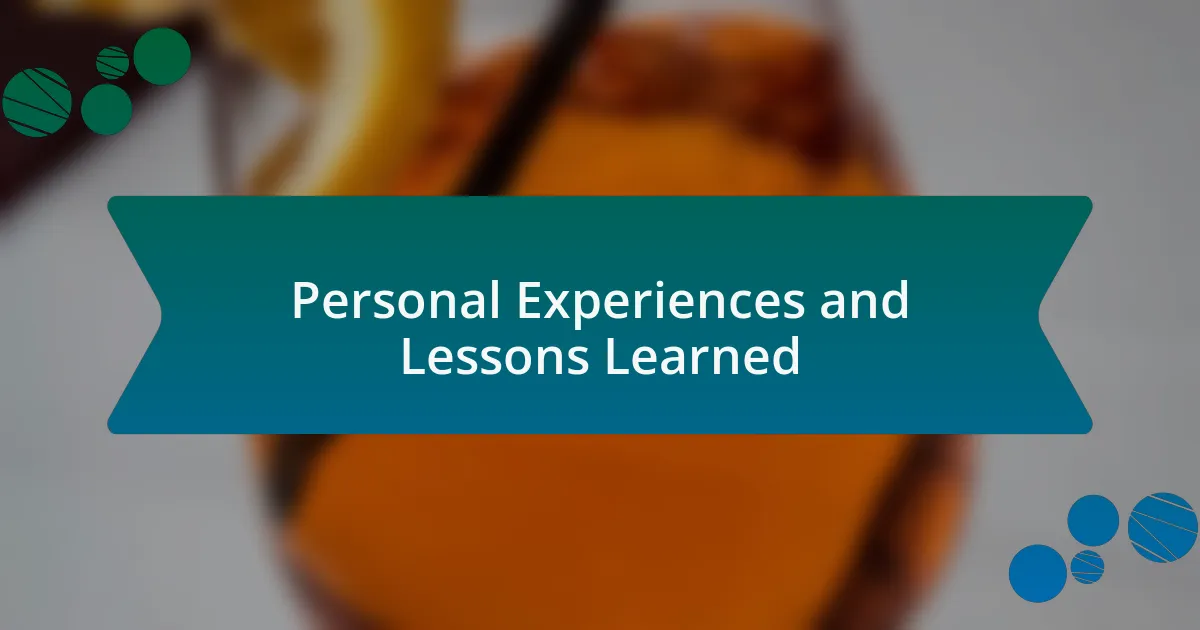Key takeaways:
- Support performers through attentive engagement to enhance the overall experience.
- Arriving on time shows respect for the performers and other audience members.
- Gauge the comfort level of performers when interacting to maintain the flow of the show.
- Mindful phone use and respecting personal space can significantly improve the atmosphere at live events.

Understanding Live Show Etiquette
When it comes to live shows, understanding the etiquette can truly enhance the experience for everyone involved. I remember attending a small jazz performance where a few patrons were engrossed in loud conversations; it created a frustrating atmosphere for those trying to appreciate the music. Isn’t it fascinating how a little awareness of our surroundings can transform a night out?
In my experience, one of the golden rules of live show etiquette is to support the performers with your attention. Imagine standing in the audience, feeling the energy of the artist on stage. When I find myself immersed in the performance, I not only enjoy the moment more but also feel a connection with fellow audience members. It’s like we’re all part of something larger, boosting the performer’s energy and passion.
Another critical aspect is the issue of phone use. I’ve seen shows where people seem more focused on capturing the perfect Instagram story than enjoying the live performance. What do you think that says about our culture? Personally, I find that putting my phone away helps me engage more deeply in the experience, allowing me to soak in every note and emotion. It’s a simple act, yet it speaks volumes about respect for the art and the artists.

Key Behaviors to Practice
Key Behaviors to Practice
One essential behavior is to arrive on time. I vividly recall one occasion where I was enjoying a mesmerizing performance, only to be distracted by latecomers shuffling in. Their entrance, with the rustling of bags and whispered apologies, broke the mood. I often wonder how impactful a show could be if everyone committed to being punctual; it truly shows respect for both the performers and those who made the effort to arrive on time.
Engaging with the performers is another important practice. I remember attending an intimate open mic night where the performers thrived off the audience’s energy. As someone who frequently claps and cheers for artists, I know firsthand how a warm response can elevate a moment and create a genuine connection. Have you ever felt the magic of joining in with the audience, collectively celebrating talent? It transforms the environment into one filled with joy and appreciation.
Lastly, maintaining a respectful distance is crucial. I once had the uncomfortable experience of someone leaning into my personal space to take a photo, completely disregarding my comfort. I realized then that while capturing memories is nice, it shouldn’t come at the expense of others’ experiences. A little mindfulness about personal boundaries can truly enhance the shared atmosphere of live shows, allowing everyone to enjoy the performance in their own way.

How to Interact with Performers
Connecting with performers can be a rewarding experience, but it’s essential to approach them thoughtfully. I recall an instance where a performer smiled back at me during a set, and I felt an instant connection that made the performance even more intense. Have you ever noticed how a simple nod or smile can encourage an artist to channel their passion even deeper into their act? It’s a subtle yet powerful exchange that enhances the overall experience.
During shows, verbal encouragement can go a long way. At a recent jazz performance, I enthusiastically shouted “Bravo!” after a stunning solo. The look of surprise and delight on the musician’s face was priceless. I believe that these moments of positivity not only uplift the performer but also create a more vibrant atmosphere for everyone present. What feedback have you given to an artist that changed the dynamic of their performance?
However, it’s equally important to gauge the performer’s comfort level. I remember attending a storytelling night where an audience member jumped on stage, aiming to interact but misreading the room. The tension that followed was palpable. I learned that being aware of context and responding appropriately to the performers’ cues can maintain the flow and energy of the show without overshadowing their talent. Have you considered how your actions might affect not just the performer, but the entire audience’s experience?

Personal Experiences and Lessons Learned
There was a night when I was at a small speakeasy, pleasantly surprised by a singer’s hauntingly beautiful voice. I made a point to sit close to the stage, where I felt the energy radiating from her. When she noticed me leaning in, it seemed to energize her performance. I realized then how my attentive engagement not only enhanced my experience but also encouraged her to reach deeper into her artistry. Have you ever felt that connection shift the mood of the room?
During another show, I found myself caught in an uncomfortable moment when I accidentally interrupted a performer by calling their name during a silent pause. The chuckle from the audience was light-hearted, but I could see the performer momentarily thrown off. This taught me the importance of timing—knowing when to cheer and when to quietly appreciate. Reflecting on this, I wonder how many times we unintentionally disrupt a moment that others are savoring.
One lesson that stands out to me is how the setting influences interactions. I once attended an open mic night where performers shared deeply personal stories, and I felt compelled to offer my support afterward. It was fascinating to see how my genuine interest in their tales led to lasting conversations long after the show ended. I encourage you to think about how your presence, both intentional and spontaneous, can elevate the experience—for you and the performers alike. Have you ever left a show with a new connection that surprised you?